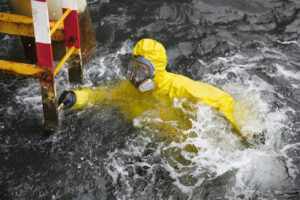History Of Oil Rig And Oilfield Explosions In Colorado

Like most states with an oil industry, Colorado has seen a significant rise in production over the years. But that success does not come without a dark side.
In addition to the major oil and gas explosions that make headlines throughout the state, the history of oil rig and oilfield explosions in Colorado is dotted with numerous smaller blasts, fires, and collapses.
Even a seemingly minor oil rig accident in a city like Denver, CO, can result in serious injuries or death. Thankfully, the Denver oil and gas explosion lawyers from Zaner Law Personal Injury Lawyers fight for fair compensation for workers and bystanders affected by these accidents. If you have been injured in such an accident, contact us at (720) 613-9706 to schedule a free consultation today.
How Zaner Law Personal Injury Lawyers Can Help After An Accident In Denver, CO

For over a decade, Zaner Law Personal Injury Lawyers has represented injured clients in Denver, Colorado, against those responsible for their injuries. Our firm has recovered millions of dollars in financial compensation for our clients, including several record-setting verdicts and settlements in the state.
After you sustain injuries in an oil rig or oilfield explosion, we will provide you with the following legal assistance:
- A discussion regarding your situation and legal rights
- An investigation into your accident and evidence gathering for your case
- Filing an insurance claim and advocating for a fair settlement on your behalf
- Litigation if the insurer denies the claim or refuses to settle
No matter the intensity of the blast, any kind of oil explosion can cause permanent, life-changing harm in the form of burns and brain injuries. With that in mind, do not hesitate to contact Zaner Law Personal Injury Lawyers for a free consultation with a Denver oil & gas explosion attorney.
What Causes Oil & Gas Explosions In Denver, CO, And Throughout The State?
Colorado has seen dozens of oil and gas explosions occur since 2000. The causes of these accidents include things such as:
- Faulty equipment
- Inadequate training or supervision
- Worker errors
- Vehicle collisions
- Safety violations
Some notable explosions and fires associated with Colorado’s oil and gas industry include the following:
- A natural gas fire at a storage tank in 2006
- An explosion at a natural gas compressor station in 2012
- A high-pressure water line explosion at an oil well in 2013
Within the last two decades, 2017 was perhaps one of the worst years for oil and gas explosions, as it included all of the following:
- An explosion in a home near a severed pipeline
- An oil tank explosion near the home explosion one month later
- An oil tank fire
- Another oil tank explosion
These accidents injured or killed several workers.
What Are Some Common Oil & Gas Explosion Injuries?
Oil and gas accidents cause many kinds of injuries, including the following:
- Concussions (from the force of the blast wave)
- Burns
- Smoke inhalation
Additionally, workers and bystanders alike are exposed to toxins released into the air and groundwater after an explosion. These chemicals can cause long-term conditions and injuries.
What Is An Oil & Gas Explosion Case Worth?
The value of your case depends on the severity of your injuries and who caused the explosion. If you worked for an oil or gas producer, you will likely receive workers’ compensation benefits for all of your injuries.
You may also have the opportunity to file a third-party claim if the explosion resulted from acts performed by someone other than your employer. For example, if the blast resulted from faulty equipment, you may be able to bring a product liability claim against the manufacturer.
What Compensation Can Victims Seek After An Oil & Gas Explosion?
Workers’ compensation only covers your medical expenses and a portion of your lost wages. It does not cover your full losses. In contrast, a third-party lawsuit could result in compensation for economic and non-economic damages.
Economic damages cover tangible, calculable losses that stem from the accident, including:
- Lost wages
- Medical expenses
- Physical therapy
- Out-of-pocket expenses
- Loss of earning capacity
These losses are easier to calculate because they have receipts and other documentation attached to them.
Non-economic damages cover subjective losses that are more difficult to calculate because they address emotional harm.
Examples of non-economic damages include:
- Pain and suffering
- Mental anguish
- PTSD
- Loss of enjoyment of life
- Loss of consortium
While these damages are more difficult to calculate, they are often worth more than economic damages.
What Is The Deadline For Filing An Oil & Gas Explosion Lawsuit In Colorado?
You should report your injury to your employer within ten days of the accident. You have two years to file a workers’ comp claim, and if you have third-party claims against parties other than your employer, you also have two years to file a personal injury lawsuit. If you miss these deadlines, you may be barred from compensation.
Exceptions to the statute of limitations include cases involving minors, individuals with disabilities, and situations where the party was not aware of their injury until later. Reach out to a personal injury attorney today to ensure that all applicable deadlines are met.
Contact Our Denver Oil & Gas Explosion Attorneys For A Free Consultation
An explosion can cause disabling injuries and permanent disfigurement. Contact Zaner Law Personal Injury Lawyers to schedule a free consultation with a Denver oil & gas explosion attorney to discuss how we can help you recover full compensation for your injuries.





